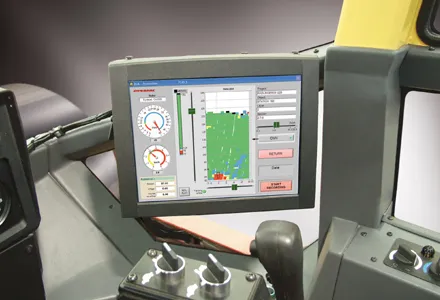An innovative electric road concept has been developed in Sweden by researchers at Lund University.. The new system features a conductive rail on the road surface, which is inactive until an EV passes over the top. The EV can be charged with up to 160kW by the rail, with the system offering an efficiency claimed to be as high as 97%. The system could allow EVs to feature smaller, lower cost batteries as range extension would be delivered by the charging system instead.
October 25, 2017
Read time: 1 min
An innovative electric road concept has been developed in Sweden by researchers at Lund University. The new system features a conductive rail on the road surface, which is inactive until an EV passes over the top. The EV can be charged with up to 160kW by the rail, with the system offering an efficiency claimed to be as high as 97%. The system could allow EVs to feature smaller, lower cost batteries as range extension would be delivered by the charging system instead.







